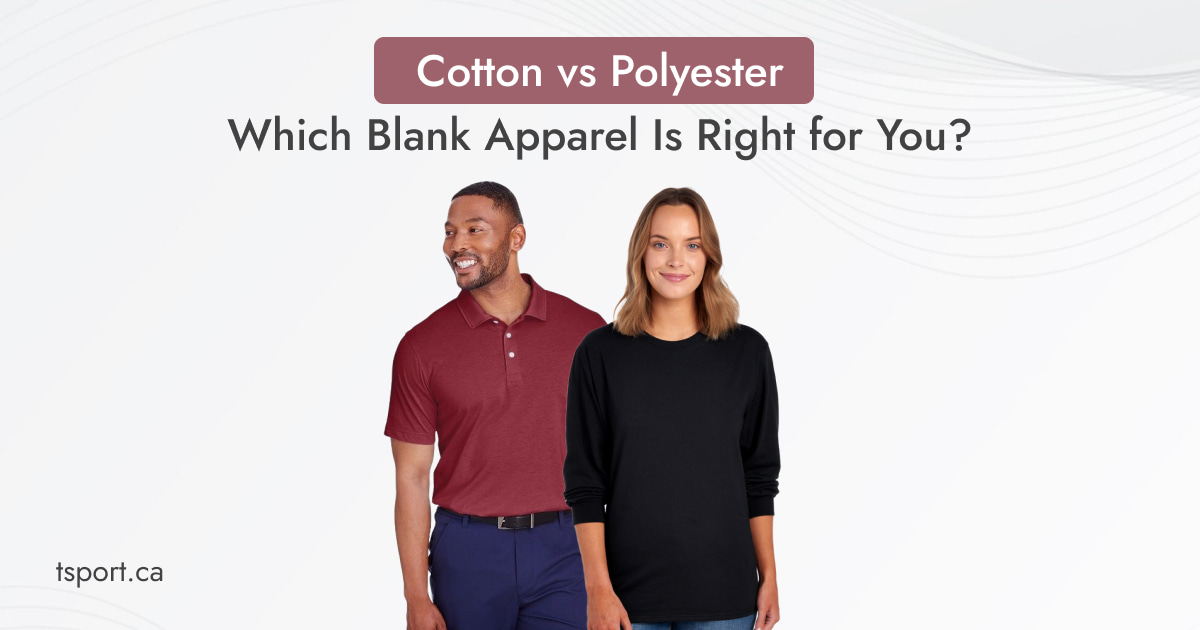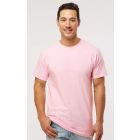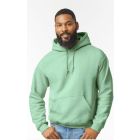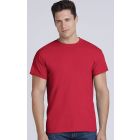
When it comes to choosing the right fabric for blank apparel, the debate between cotton vs polyester remains a hot topic. Whether you’re an apparel buyer, a fashion blogger analyzing trends, a sustainability-conscious shopper, or a custom clothing business, understanding the difference between cotton and polyester can help you make informed, cost-effective, and brand-aligned decisions.
From t-shirts to hoodies and activewear, the fabric you choose impacts not just aesthetics but also comfort, performance, durability, and environmental footprint. This blog dives deep into the characteristics, pros and cons, and practical applications of both cotton and polyester fabrics.
Importance of Understanding Cotton vs Polyester
Blank apparel is a canvas—literally—for creativity and identity. Whether you’re screen printing designs for your brand, outfitting your team in custom activewear, or selecting the best material for sustainable fashion, knowing the difference between cotton and polyester helps you:
- Ensure better comfort and usability for your customers.
- Choose the right fabric for printing or embroidery.
- Align with environmental and ethical values.
- Make long-term cost-effective investments.
Each fiber has its own strengths, limitations, and ideal use cases, making it crucial to evaluate them before you commit.
What Is Cotton? Pros & Cons
Cotton is a natural fiber harvested from the cotton plant. It’s been used for thousands of years and remains one of the most widely used fabrics in the fashion and textile industry.
Pros of Cotton:
- Breathable & Comfortable: Cotton allows air to flow, making it ideal for warm climates and sensitive skin.
- Hypoallergenic: Great for people with allergies or skin conditions.
- Eco-Friendly (when organic): Biodegradable and less polluting compared to synthetic fibers.
- Easy to Print On: Cotton fibers hold inks and dyes well, offering vibrant, long-lasting prints.
Cons of Cotton:
- Shrinks After Washing: Especially if not pre-shrunk.
- Wrinkles Easily: Requires ironing or additional treatments to maintain a smooth look.
- Less Durable When Wet: Can break down faster over time compared to synthetics.
- Holds Moisture: Not ideal for performance wear or humid conditions.
What Is Polyester? Pros & Cons
Polyester is a synthetic fiber made from petroleum-based chemicals. It has become increasingly popular in modern fashion, especially in activewear and performance gear.
Pros of Polyester:
- Highly Durable: Resistant to shrinking, stretching, and wrinkling.
- Moisture-Wicking: Excellent for workouts and sports activities.
- Retains Shape: Maintains its form even after multiple washes.
- Cost-Effective: Usually cheaper to produce and purchase.
Cons of Polyester:
- Less Breathable: Can feel uncomfortable in hot and humid environments.
- Can Trap Odors: Doesn’t release smells easily in the wash.
- Environmental Impact: Non-biodegradable and made from fossil fuels.
- Less Soft: May not feel as natural or cozy as cotton.
Cotton vs Polyester for T-Shirts, Hoodies, and Activewear
T-Shirts
- Cotton T-Shirts: Preferred for daily wear, comfort, and breathability. Ideal for screen printing.
- Polyester T-Shirts: Popular in promotional events and athletic use due to their durability and affordability.
Verdict: Choose cotton for comfort-focused, stylish daily wear. Opt for polyester for budget buys or sport-related activities.
Hoodies
- Cotton Hoodies: Heavier, warmer, and softer—ideal for fashion and casualwear.
- Polyester Hoodies: Lightweight and quick-drying—good for workouts or layering in variable weather.
Verdict: Cotton hoodies suit lifestyle and fashion brands; polyester hoodies are better for outdoor or performance use.
Activewear
- Cotton Activewear: Less common due to its moisture-holding nature.
- Polyester Activewear: Designed to wick sweat, stay dry, and stretch—perfect for gyms and sports.
Verdict: Polyester is the clear winner for activewear due to its functional benefits.
Conclusion
Choosing between cotton vs polyester depends on your specific needs—comfort, durability, cost, environmental concerns, or the end-use of the garment.
- For daily wear and comfort, cotton is the better option.
- For performance and durability, polyester stands out.
- For fashion or eco-conscious branding, opt for organic cotton.
- For bulk promotional apparel, polyester may help you stay within budget.
- No single fabric is universally superior—it’s about what suits your brand, customer, and purpose best.
FAQs:
Is cotton or polyester better for hot weather?
Cotton is better for hot weather because it is breathable and absorbs sweat, keeping you cooler. However, if you need moisture-wicking during intense activity, polyester may be preferred.
What is the difference between cotton and polyester for printing?
Cotton allows for vibrant and long-lasting prints using traditional methods like screen printing. Polyester often requires sublimation printing or special treatments to ensure colors hold properly.
Which is more sustainable: cotton or polyester?
Organic cotton is more eco-friendly due to its biodegradability and natural origin. Polyester has a higher environmental impact, though recycled polyester options are now becoming more popular.
Does polyester last longer than cotton?
Yes, polyester is more resistant to wear and tear, making it ideal for uniforms, sports gear, and frequently washed items.
Is polyester bad for sensitive skin?
Polyester may irritate sensitive skin due to its synthetic nature, whereas cotton is hypoallergenic and more gentle.
Looking to Buy Bulk Blank Apparel?
Whether you're sourcing for your clothing line, event, or print-on-demand business, explore a wide variety of cotton and polyester blank apparel at Tsport. With fast shipping across Canada and competitive wholesale prices, Tsport.ca is your one-stop shop for premium blank t-shirts, hoodies, polos, and more.






